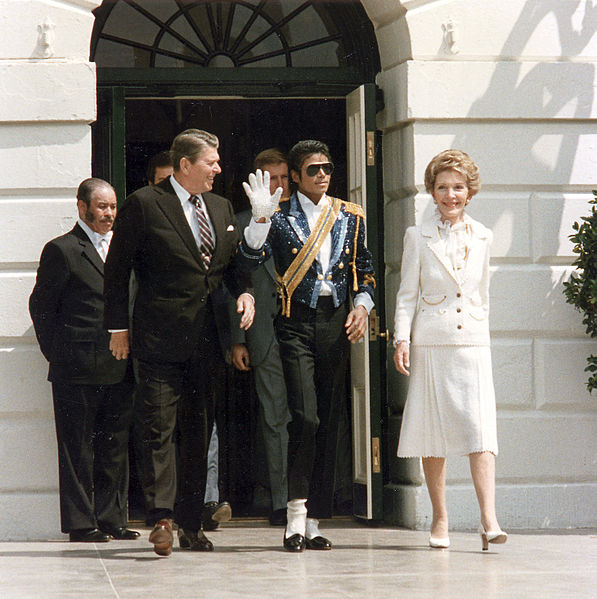By Arturo Hernandez
That any person could become an expert in something if they simply spend about 3 hours per day for ten years learning it is an appealing concept. This idea, first championed by Ericsson and brought to prominence by Gladwell, has now taken root in the popular media. It attempts to discuss these differences in terms of the environment. The idea is that practice with the purpose of constantly gathering feedback and improving can lead any person to become an expert. If becoming an expert requires 10,000 hours, does a prodigy need 20,000.
Lets consider, Michael Jackson, as an example of a prodigy. He grew up in a musical family in Gary, Indiana just outside Chicago. His father Joe played in an R&B band. All of his siblings played music in one way or another. Unlike his siblings and father, Jackson did not really play any instruments. However, he would compose songs in his head using his voice. One morning he came in and had written a song which eventually became ‘Beat It’. In the studio, he would sing each of the different parts including the various instruments. Then the producers and artists in the studio would work on putting the song together, following his arrangements.
Work in cognitive neuroscience has begun to shed light on the brain systems involved in creativity as being linked to psychometric IQ. Work by Neubauer and Fink suggests that these two different types of abilities, psychometric IQ and expertise, involve differential activity in the frontal and parietal lobes. They also appear for different types of tasks. In one study, taxi drivers were split into a high and low group depending on their performance on a paper and pencil IQ test. The results showed that both groups did equally well on familiar routes. The differences appeared between groups when they were compared on unfamiliar routes. In this condition, those with high IQs outperformed those with low IQ. So expertise can develop but the flexibility to handle new situations and improvise requires more than just practice.
Reports of Michael Jackson’s IQ are unreliable. However, he is purported to have had over 10,000 books in his reading collection and to have been an avid reader. His interviews reveal a person who was very eloquent and well spoken. And clearly he was able to integrate various different types of strands of music into interesting novel blends. If we were to lay this out across time, we have perhaps the roots of early genius. It is a person who has an unusual amount of exposure in a domain that starts at an early age. This would lead to the ability to play music very well.

Jackson came from a family filled with many successful musicians. Many were successful as recording artists. Perhaps Michael started earlier than his siblings. One conclusion we can draw from this natural experiment is that creative genius requires more than 10,000 hours. In the case of Michael Jackson, he read profusely and had very rich life experiences. He tried to meld these experiences into a blended musical genre that is uniquely his and yet distinctly resonant with known musical styles.
The kind of creativity is not restricted to prodigies like Michael Jackson. Language, our ultimate achievement as a human race, is something that no other animal species on this planet shares with us. The seeds of language exist all over the animal kingdom. There are birds that can use syntax to create elaborate songs. Chinchillas can recognize basic human speech. Higher primates can develop extensive vocabularies and use relatively sophisticated language. But only one species was able to take all of these various pieces and combine them into a much richer whole. Every human is born with the potential to develop much larger frontal lobes which interconnect with attention, motor, and sensory areas of the brain. It is in these enlarged cortical areas that we can see the roots of creative genius. So while 10,000 hours will create efficiency within restricted areas of the brain, only the use of more general purpose brain areas serve to develop true creativity.
Arturo Hernandez is currently Professor of Psychology and Director of the Developmental Cognitive Neuroscience graduate program at the University of Houston. He is the author of
The Bilingual Brain. His major research interest is in the neural underpinnings of bilingual language processing and second language acquisition in children and adults. He has used a variety of neuroimaging methods as well as behavioral techniques to investigate these phenomena which have been published in a number of peer reviewed journal articles. His research is currently funded by a grant from the National Institutes of Child Health and Human Development. You can follow him on Twitter
@DrAEHernandez. Read his
previous blog posts.
Subscribe to the OUPblog via
email or
RSS.
Subscribe to only brain sciences articles on the OUPblog via
email or
RSS.
Image credit: Michael Jackson with the Reagans, by White House Photo Office. Public domain via Wikimedia Commons.
The post Michael Jackson, 10,000 hours, and the roots of creative genius appeared first on OUPblog.

By Arturo Hernandez
Everyday I get asked why second language learning is so hard and what can be done to make it easier. One day a student came up to me after class and asked me how his mother could learn to speak English better. She did not seem to be able to breakthrough and start speaking. Perhaps you or someone you know has found learning another language difficult.
So why is it so hard?
There are a lot of explanations. Some have to do with biology and the closing of a sensitive period for language. Others have to do with how hard grammar is. People still take English classes in US high schools up to senior year. If a language were easy, then native speakers of a language would not have to continue studying it to the dawn of adulthood.
But what if we took a different approach. Rather than ask what makes learning a second language so hard, let’s ask what makes it easier.

One group of successful language learners includes those who write in a second language. For example, Joseph Conrad, born Józef Teodor Konrad Korzeniowski, wrote Heart of Darkness in English, a language he spoke with a very strong accent. He was of Polish origin and considered himself to be of Polish origin his entire life. Despite his heavy accent, he is regarded by many as one of the greatest English writers. Interestingly, English was his third language. Before moving to England, he lived in France and was known to have a very good accent in his second language. Hence, success came to Conrad in a language he spoke less than perfectly.
The use of English as a literary language has gained popularity in recent years. William Grimes, in a New York Times piece, describes a new breed of writers that are embracing a second language in literary spirit. Grimes describes the prototypical story that captures the essence of language learning, The Other Language from Francesca Marciano. It’s the story of a teenager who falls in love with the English language tugged by her fascination with an English-speaking boy. Interestingly, it turns out there is a whole host of writers who do so in their second language.
Grimes also considers the effects that writing in a second language has on the authors themselves. Some writers find that as time passes in the host country they begin to take on a new persona, a new identity. Their native land grows more and more distant in time and they begin to feel less like the person they were when they initially immigrated. Ms. Marciano feels that English allows her to explore parts of her that she did not know existed. Others feel liberated by the voice they discover in another language.
The literary phenomenon that writers describe is one that has been discussed at length by Robert Schrauf of Penn State University as a form of state-dependent learning. In one classic study of state-dependent learning, a group of participants was asked to learn a set of words below or above water and then tested either above or below water. Interestingly, memory was better when the location of the learning matched the testing, even when that was underwater, a particularly uncomfortable situation relative to above water. Similar explanations can be used to describe how emotional states can lead to retrieval of memories that are seemingly unrelated. For example, anger at a driver who cuts you off might lead to memories of the last time you had a fight with a loved one.
Schrauf reviews evidence that is consistent with this hypothesis. For example, choosing the same word in a first or second language will lead people to remember events at different times in their lives. Words in the first language lead to remembering things earlier in life whereas viewing a translation in a second language leads to memories that occurred later in life.
The reports of writers and the research done by Robert Schrauf and his colleagues help point to a key aspect that might help people learn their second language. Every time someone learns a new language they begin to associate this language with a set of new experiences that are partially disconnected from those earlier in life. For many this experience is very disconcerting. They may no longer feel like themselves. Where they were once fluent and all knowing, now they are like novices who are trying desperately to find their bearings. For others like Yoko Tawada, a Japanese native who now lives in Berlin and writes in German, it is the very act of being disconnected that leads to creativity.
Interestingly, the use of two languages has also served as a vehicle for psychotherapists. Patients that undergo traumatic experiences often report the ability to discuss them in a second language. Avoidance of the native language helps to create a distance from the emotional content experienced in the first language.
The case of those who write in their second language as well as those in therapy suggests that our identity may play a key role in the ability to learn a second language. As we get older new experiences begin to incorporate themselves into our conscious memory. Learning a second language as an adult may serve to make the differences between distinct periods in our lives much more salient. Thus, the report of writers and the science of autobiographical memory may hold the key to successful language learning. It may involve a form of personal transformation. For those that are unsuccessful it may involve an inability to let go of their old selves. However, for those who embrace their new identity it can be liberating.
It was precisely this point that I raised with the student in my class who sought advice for his mother. I explained that learning a second language will often involve letting go of our identities in order to embrace something new. But how do you get someone to let go of himself or herself? One way to achieve this is to start keeping a diary in an unfamiliar language. It is probable that writing may not only lead a person to develop better language skills but also carry other deeper consequences. Writing in a non-native language may lead someone to develop a new identity.
Arturo Hernandez is currently Professor of Psychology and Director of the Developmental Cognitive Neuroscience graduate program at the University of Houston. He is the author of The Bilingual Brain. His major research interest is in the neural underpinnings of bilingual language processing and second language acquisition in children and adults. He has used a variety of neuroimaging methods as well as behavioral techniques to investigate these phenomena which have been published in a number of peer reviewed journal articles. His research is currently funded by a grant from the National Institutes of Child Health and Human Development. You can follow him on Twitter @DrAEHernandez. Read his previous blog posts.
Subscribe to the OUPblog via email or RSS.
Subscribe to only brain sciences articles on the OUPblog via email or RSS.
Image credit: Young female student with friends on break at cafe. © LuckyBusiness via iStockphoto.
The post Does learning a second language lead to a new identity? appeared first on OUPblog.

By Arturo Hernandez
Before I wrote my last blog entry, I got a Twitter account to start tracking reactions to that entry. I was surprised to see that people that I had never met favorited my post. Some even retweeted it. Within a day, I started to check my email to see if someone else had picked up on it. It felt so good to know that people that I had never met from all over the world were paying attention to me.
The addictiveness of Twitter is not specific to me. There have been articles about getting Justin Bieber to follow you as a form of addiction. But the problem is much more pervasive than that.
Many of the symptoms associated with cocaine addiction are popping up in people who are simply on the Internet. The toxic effects of cocaine addiction have been known for years. Studies find that rats will self-administer cocaine to the point of death over a period of time. The pharmacological effects are also well known; cocaine magnifies the effects of dopamine chemically. The interesting part is that Twitter, Facebook, and video games seem to have a similar effect as well. Thus, dopamine is part of a reward system.

Interestingly, dopamine is also known to play a role in the brain systems that are used to control our mental focus. Recent work has found that dopamine plays a role in the connection between the frontal areas that are involved in cognitive control and the posterior areas of the brain involved in processing incoming information from the senses.
And here, work in bilingual literature might have found an antidote to the plague of Internet addiction. Ellen Bialystok and her colleagues have found that bilinguals tend to be better at switching between tasks and at using inhibition — what researchers call cognitive control. Theoretical work by Stocco, Pratt and colleagues proposes that the use of two languages on a regular basis helps to strengthen the use of brain areas that are highly linked to dopamine. Many of the same frontal areas have been shown to be involved in control in bilinguals. Thus, it is logical to conclude that dopamine which leads to increased addiction may also be involved in giving bilinguals an edge in focusing. It is a classic U-shaped function where too little and too much are bad but somewhere in the middle is just right.
So what happens when a bilingual faces the onslaught of Internet addiction. Is s/he more resistant? I don’t know the ultimate answer to that question. But I was struck by how quickly the Twitter craze that had me checking my page every minute faded. Perhaps it is the four languages that I have learned that serve to protect me more and allow me to stop the urge to check my page again. Today, I am happy to report that I have written this blog entry with the understanding that any benefit will come long term. And I have my language learning history to thank for that.
But, please, favorite this; please, retweet it. Please, please, please!
Arturo Hernandez is currently Professor of Psychology and Director of the Developmental Cognitive Neuroscience graduate program at the University of Houston. He is the author of The Bilingual Brain. His major research interest is in the neural underpinnings of bilingual language processing and second language acquisition in children and adults. He has used a variety of neuroimaging methods as well as behavioral techniques to investigate these phenomena which have been published in a number of peer reviewed journal articles. His research is currently funded by a grant from the National Institutes of Child Health and Human Development. Read his previous blog posts and follow him on Twitter @DrAEHernandez.
Subscribe to the OUPblog via email or RSS.
Subscribe to only psychology articles on the OUPblog via email or RSS.
Image credit: Apple’s iPhone 4 with a busy home screen on the grass with chamomile flowers. © ZekaG via iStockphoto.
The post Dopamine, Twitter, and the bilingual brain appeared first on OUPblog.






